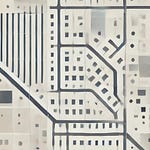Generative AI has progressed significantly, showing its impressive skill with language processing. We now have AI that can easily converse with humans and hold complex conversations on just about any topic. But to date, we don't have robots driven by AI that can cook a meal for us. While it may seem counterintuitive, it turns out that developing and training AI on the seemingly mundane movements needed to fry an egg on a stovetop, for example, is extremely difficult—way more so than language processing.
This got me thinking about human motion and movement—all the things that we essentially take for granted, that we just perform effortlessly every day. I'm a runner. About five times a week, I put on my running shoes, step outside, and simply start running. I don't need to think much about it. I just move. But this act of running, which humans do quite well, is a distinguishing feature of our species, and this skill took millions of years to evolve.
Some unique facts about human movement and running:
We are among the best endurance runners in the animal kingdom, capable of running long distances over extended periods.
We have sweat glands distributed across our entire body, allowing efficient heat dissipation. Unlike most animals, we can cool down while running without needing to stop and pant.
We possess a ligament at the back of the neck, called the nuchal ligament, which stabilizes the head while running—a feature absent in non-running animals.
We have a very well-developed Achilles tendon compared to other animals, enabling us to cover long distances with minimal energy expenditure.
It turns out that running is a unique expression of being human!
Now back to AI. Personalized robots that can perform most of the household tasks requiring motion and movement that humans do daily are on the horizon. Like generative AI, the introduction of this technology will be disruptive and sci-fi-like and, perhaps, cause more unintended consequences—some good and some bad.
Will household robots cause us to find even more reasons to move less? Are more and more of us destined to become couch potatoes, letting our household robots perform more and more of our household chores, ensuring we move less and less?
The consequences could be dire for us, as science shows that non-exercise activity thermogenesis (NEAT) is good for maintaining our metabolic health and weight. Think of NEAT as all those movements and motions you do during the day that aren’t actually considered exercise but are activities that require energy expenditure, like vacuuming, walking around the grocery store, or mowing the lawn. You get the idea. So when household robots arrive, does NEAT plummet, and do our obesity and diabetes rates skyrocket even further?
A more optimistic outcome could be that the arrival of household robots provides us with more free time. We could then choose to use this free time to move around more through exercise, trips to the gym, or just being out and about in our neighborhoods.
In the Age of AI, it may be critical that we are diligent in expressing what makes us uniquely human. Otherwise, we risk generative AI overwhelming human expression in literature and the arts and the arrival of household robots undermining our evolutionary need to move through physical space.
During my run today, I was grateful to be out running in the physical world, in the cold. This is what humans do!
Shameless plug:
In addition to maintaining the Saratoga Civics Pulse Substack site, I’m currently President of the Saratoga Stryders, a local running club. Currently, our club is 300 members strong. We’re always looking for new members. Beginner runners are always welcome! Check us out if you are interested!










